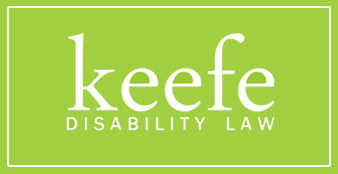Speech is how we express our thoughts and feelings. How frustrating it must be to lose the power to speak, yet an estimated 7.5 million Americans have some degree of difficulty using their voices for speech.
Types of Speech Impairments
- Aphasia: Aphasia is a communication disorder that results from damage to the parts of the brain that control language. The damage may be the result of brain injury, stroke, or illness. Those with aphasia may have problems with speaking, listening, reading, and/or writing.
- Articulation disorders: Those with articulation disorders have a physical difficulty making sounds. Articulation disorders can be caused by hearing problems, illness, or physical differences, such as cleft palate, ankyloglossia, missing teeth, and dental conditions.
- Apraxia of speech: Apraxia is a speech disorder in which a person has trouble saying what he or she wants to say. The sounds and syllables are often in the wrong order. Apraxia may be caused by brain injury, stroke, brain tumor or other illness affecting the brain.
- Dysarthria: Dysarthria refers to paralysis or physical weakness in the speech muscles. This is usually caused by nerve damage or brain damage and may be related to disease such as cancer, cerebral palsy, stroke, Lyme disease, Huntington’s disease, multiple sclerosis, or Parkinson’s disease.
- Dysprosody: A neurological speech disorder characterized by changes in pitch, timing, rhythm, intonation, and volume of speech. This rare disorder is also known as “pseudo-foreign dialect syndrome” and is caused by brain trauma, brain tumors, or stroke.
- Muteness: Muteness is an inability to speak in someone with normal hearing. There are many possible causes for muteness.
- Phonemic disorders: The individual has trouble learning the sounds of a language. This is most common in adults who are relearning to talk after a stroke or in those with dementia.
- Stuttering: Stuttering is a speech disorder in which the flow of sound is interrupted by involuntary repetitions. Some causes of stuttering are stroke, mental disability, and brain abnormality. In some cases, there is no known cause for stuttering.
- Voice disorders: Voice disorders are usually due to problems with the larynx (voice box) or vocal cords. They may be caused by laryngectomy (removal of the larynx, to treat cancer).
Qualifying for Social Security Disability Benefits with a Speech Disorder
There are two ways to qualify for Social Security disability benefits (SSDI) with a speech disorder:
- Meet a listing: Your disability or impairment must meet all of the requirements of a disability listing in the Social Security Administration’s “Blue Book.” Blue Book disability listing 2.09 addresses the loss of speech.
- Be unable to perform substantial, gainful activity: You must prove that your speech disorder combined with other disabilities, limits the ability to perform any type of work for pay (it’s ok to earn less than $1,040 per month). If you are unable to do your prior work, the social Security Administration (SSA) will consider your age, education, and work experience in order to determine if you can do other work.
Since most speech impairments are the result of another condition such as a stroke, brain tumor, or cerebral palsy, the SSA will evaluate the underlying condition when determining your eligibility for benefits. Listing 2.09 is generally only used when speech difficulties are due to a physical problem with the tongue, larynx, or pharynx. To qualify for SSDI under listing 2.09, an applicant must show through medical records that he or she is unable to produce speech that can be heard, understood, and sustained through any means. If your speech can be understood with the help of an esophageal speech or electronic device, you will not be approved.
When applying for SSDI for speech impairment, make sure to include all your disabilities and impairments, even if they seem minor. The SSA considers all your limitations when determining your Residual Functional Capacity (RFC, the ability to work).
For more tips about applying for SSDI for speech disorders, request a free copy of Unlocking the Mystery: The Essential Guide for Navigating the Social Security Disability Claims Process. If you have questions, or would like to discuss your application with a Boston disability benefits attorney, please contact Keefe Disability Law at 888-904-6847, and ask to schedule a free consultation.
Are You Looking for a Social Security Disability Attorney in Boston, MA?
If you are looking to apply for social security disability, you need to speak with an experienced social security disability lawyer as soon as possible. Please contact us online or call our Natick Office directly at 508.283.5500 to schedule your free consultation.


